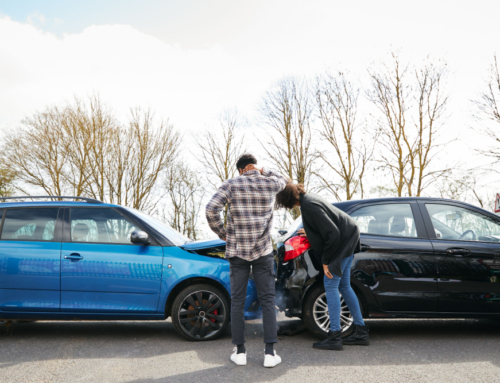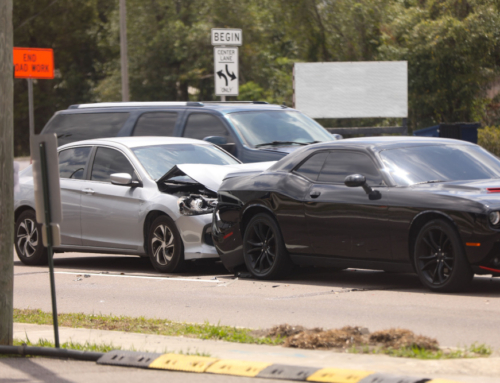Are using hands-free devices while driving safer than using a phone held by hand? You may be saying yes, and a number of drivers in the United States might agree with you. 80% of polled drivers thought using this type of device would be safer than using a phone held by hand, but studies have shown that this belief just isn’t backed up by the  facts.
facts.
While it makes sense why a hands-free device would seem to allow you more focus and more control while driving, these devices still contribute to a percentage of crashes on the road. 24% of call crashes that involve conversations on cell phones, according to the NSC. Research suggests that a hands-free version might even be more distracting than driving intoxicated.
Any type of hands-free device can cause a car accident. It could be a dashboard system, Bluetooth earpiece, speakerphone feature located on a cell phone, and more. The National Safety Council’s research says that the danger in these devices is their ability to distract. Distracted driving is anything that can distract the mind, eyes, hands and more from driving.
The brain can only pay attention to so much. When in conversation on the phone, the brain loses its ability to process the moving images it sees by nearly a third. Even when watching the road, a driver’s eyes may not end up seeing half of what they take in. It’s even worse than talking with a passenger since the passenger can warn a driver about things that they are overlooking, while a device usually cannot.
A 2006 study conducted by the University of Utah looked at intoxicated adult drivers and found they were actually less dangerous than drivers who were talking on the phone while they were driving. The study also saw more of the phone users end up crashing than the intoxicated drivers and found no difference between the hand held cell phones and the hands-free devices in terms of driver performance.
A lot of studies have come out with similar results. Touro University researchers discovered that the impairment level between intoxicated drivers and the hands-free users comes out to be the same. It turns out that intoxication may even be preferable, as the television show MythBusters showed in an experiment where the drunk driver performed better on the driving course than a hands-free driver speaking to someone over the phone.
Some people think that the sense of security provided by going hands-free means that drivers feel that they aren’t prone to the same dangers of distracted driving. They’re advertised that way, at least, but research has proved this to be false. In fact, many drivers today have no idea that hands-free devices are still going to distract their brain on a fundamental level and put them at increased risk for getting into an accident.
Using a phone and holding a conversation or engaging your mind in anything but driving while on the road is dangerous! We encourage all drivers to focus on driving and avoid using any type of phone device while operating a motor vehicle. If you have been in an accident lately involving any type of phone device and wish to schedule a consultation with qualified attorneys, get in touch with us today.








